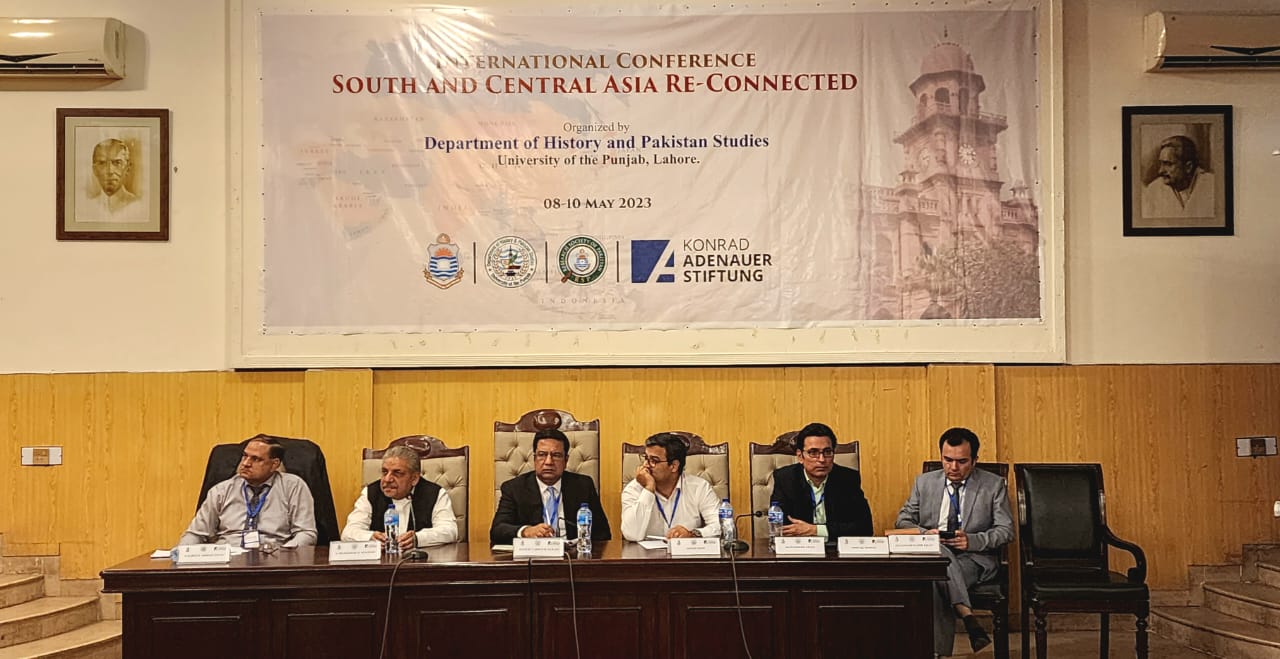Three-Day International Conference on “South & Central Asia Re-Connected” held at University of the Punjab, Lahore

A three-day international conference (8th–10th May 2023) on "South and Central Asia Re-Connected" was held. It was organized by the Department of History and Pakistan Studies, University of the Punjab, Lahore, at Al Raazi Hall.
The conference was aimed at emphasizing the need for cooperation between South Asia and Central Asia to address common issues faced by both regions, such as security, extremism, and climatic and environmental issues. It was aimed at enhancing people-to-people connectivity, trade and investment, and the exchange of ideas and knowledge.
The experts highlighted how regional connectivity is crucial to unlocking the potential of this diverse and dynamic region. They also suggested how security, extremism, and climatic and environmental issues could be resolved by the two regions.
The international conference featured significant plenary sessions and interactive discussions. The inaugural session of the conference was addressed by renowned experts, academicians, and analysts.
On Day 1, Mr. Khalid Taimoor Akram, Executive Director, Pakistan Research Centre for a Community with Shared Future (PRCCSF), presented a speech on "Regional Organisations and Institutions (SCO)". He stated that the SCO is a potent multilateral institution and a conducive platform for the member states to maintain peace and stability and also promote cultural, educational, and scientific exchange.
He said that SCO promotes cultural exchanges and cooperation and also further expands bilateral and multilateral trade, promoting broader and more practical multilateral security cooperation. SCO is an inalienable part of Central and South Asia and a bridge between them. South Asia is actively involved in the SCO’s role in connecting South and Central Asian cooperation.
Expanding cultural interactions within the SCO region, strengthening mutual understanding among its peoples, respecting their cultural traditions and customs, and preserving and enhancing cultural diversity within SCO member states remain top priorities aimed at promoting harmony and ensuring security and sustainable development.
Adding to his speech, he stated that cooperation between the authorities of SCO member states is based on common interests rather than being the tool of one member state’s geopolitical ambition. In the end, he concluded his remarks by saying that SCO countries work together and develop a shared sense of identity and purpose.
The participants discussed how to achieve long-term peace and stability and gave new ideas for multilateral economic cooperation in the SCO domains.
On Day 2, Mr. Khalid Taimoor Akram, ED, PRCCSF, chaired an informative session titled "Regional Security: Threats of Jihadism, Drugs and Arms Trafficking, and Climate Change."
The session convened prominent experts, policymakers, and academics from diverse fields who shared their insights and expertise on the critical challenges facing our region in the domains of security, terrorism, organized crime, and environmental concerns. They emphasized the need for collaborative efforts at regional levels to address them effectively. They also guided the discussions and facilitated the exploration of comprehensive strategies to tackle these multifaceted issues.


